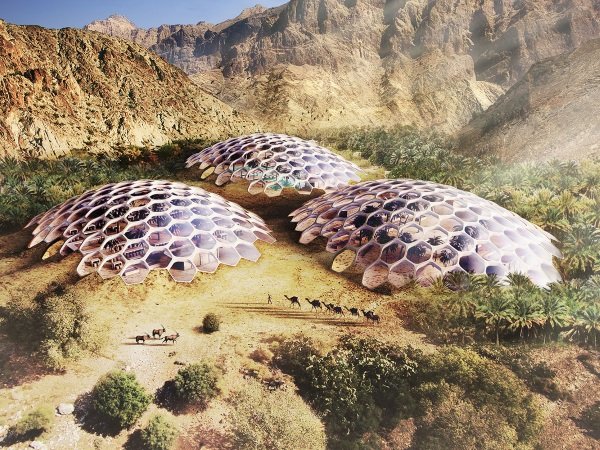These luxuries are designed to be guilt-free, since among the project’s more salient environmental features are 100% renewable energy, recycling waste water on-site for irrigation, and on-site waste management technology. Baharash Architecture and the project’s sponsors firmly believe that sustainable tourism is the key to future travel experiences, not just in the region but across the globe. The extra costs involved lead to a desirable ROI as “sustainable tourism brings many benefits to host communities whilst also enhancing travelers’ experiences.”
Projects like The Biodomes are win-win endeavors that continue to pay off long after the tourists have been and gone. “It can increase employment and provide long-term income-earning opportunities for locals,” notes the design studio. “It can help to conserve natural heritage, biodiversity and local ecosystems. Sustainable tourism also aims to provide the same level of benefits to future generations. This can be achieved by ensuring that our activities today do not compromise the needs of future generations.”
Efforts to remediate past, present and future environmental degradation while lessening the pressures on endangered species are hit & miss across the globe, forcing ecotourists to choose their destinations with care. That’s not a bad thing, as Baharash Architecture states: “Given that the travel & tourism industry is expected to continue growing faster than the global economy and most other major industries, shifting the balance towards sustainable tourism has become a necessity.” Thus as futuristic as The Biodomes may be, the time will come when the project will be viewed as an industry trend-setter and a model well worth emulating.

